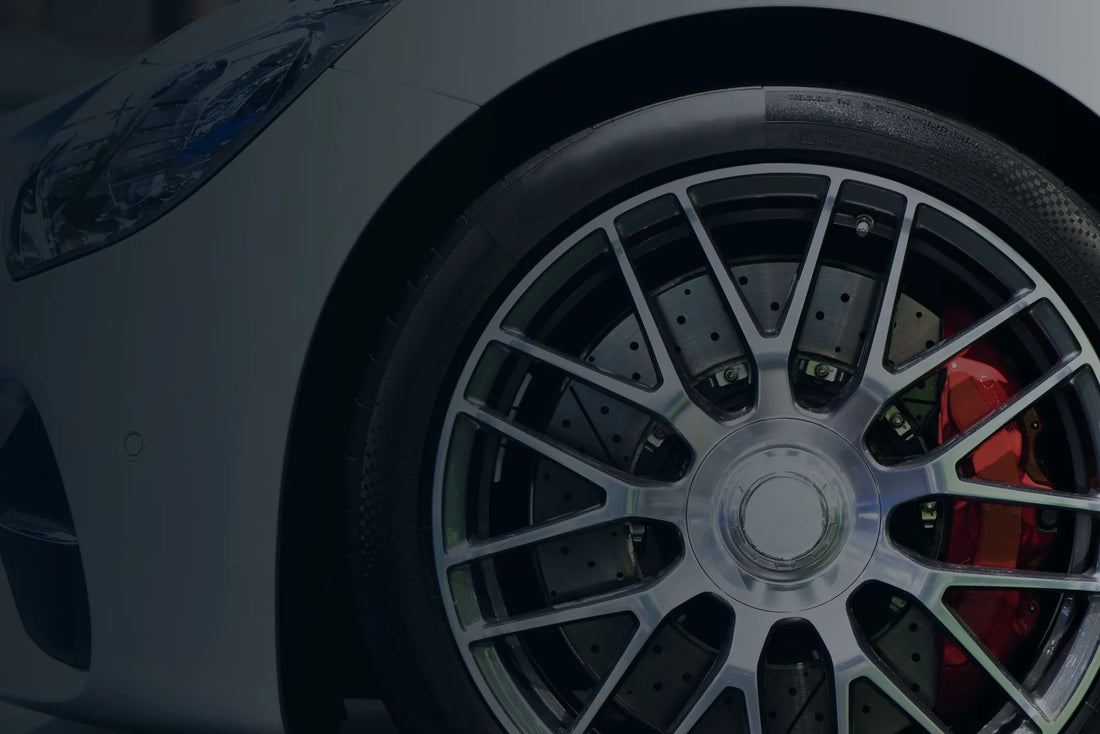What are Brake Pads?
Brakes are the most important safety component of your car. If you have ever experienced brake failure or fading while driving, then you know how frightening it can be. Without a doubt, avoiding collision in such a situation can be an impossible mission.
Although you have dozens of moving parts and systems in your car, the brake system operates at a simple principle. When you press the brake pedal, a pressure created in the master cylinder causes calipers to press the brake pads against the rotor. The resulting friction slows down your car and ultimately stops the car.
On most cars today, brake systems have two separate hydraulic circuits, with two wheels on each circuit. A pressure loss in one circuit will not affect another one, and you will still be able to stop the car, despite reduced braking power.
How Can I Check If My Brake Pads Are Bad?
All brake parts eventually experience wear and tear over time, but the process of losing brake function due to worn pads or rotors is a gradual one. This means you will have ample time to replace worn brake components before they affect your vehicle's stopping ability.
However, if the master cylinder fails, which is responsible for transmitting force from the brake pedal to the brakes, this can result in a sudden and unexpected loss of braking power. Fortunately, master cylinders and hydraulic brake systems on modern vehicles are generally very dependable and can last the lifespan of the car.
Another thing to check is if the rotor thickness is above minimum. You can do this with a vernier caliper, measuring on the flat surface and not up on the rust ridge. As for the minimum thickness value, you can find it engraved into the rotor itself.
To ensure the proper functioning of your brakes, it is recommended to perform a brake inspection at least once a year. These inspections can be conveniently scheduled alongside oil changes or tire rotations. However, if you experience pulsing, vibrations, or pulling to one side while braking, or if you hear screeching or grinding noises when applying the brakes, it's important to have your brakes inspected immediately as these symptoms can indicate worn or damaged components.
How Else Can I Check If My Brake Pads Are Bad?
Regularly inspecting your brake pads can help ensure the proper functioning of your brake system. The brake pads are made from a fibrous material that wears away each time you apply your brakes. To check the brake pads, you can physically and visually inspect them.
Many brake pads have wear indicators, also known as squealers. These are small metal parts that are designed to make a high-pitched sound when the brake pads are worn down. This sound serves as a warning that it's time to replace the brake pads. If you hear this noise while braking, it's important to inspect your brakes right away as the pads will continue to wear with every stop.
However, not all brake pads have wear indicators, so it's important to also check your brakes at least once a year. Additionally, worn out brake pads will produce screeching and grinding noises while braking.
If the brake pads are worn out and not replaced, it can damage other brake components such as rotors. Damaged brake pads can lead to longer stopping distance and also can cause vibration in steering wheel. Thus it's important to take brake inspection at regular intervals.
Overall, regularly inspecting your brake pads and addressing any issues promptly can help prevent costly repairs and ensure that your brake system is functioning at its best.

